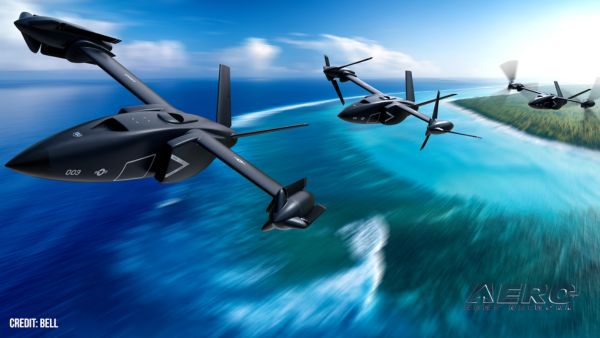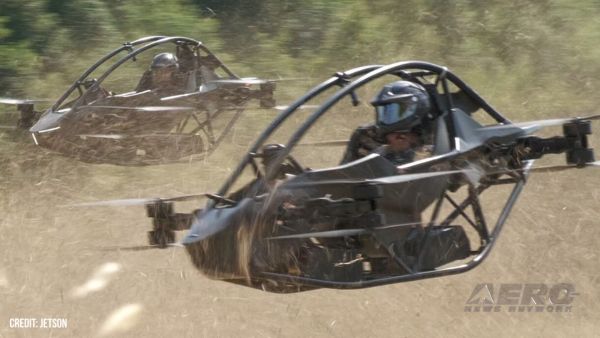Twenty Proposals From 19 Businesses Receive Funding
NASA has selected 20 research and technology proposals -- valued at $15 million -- from 19 American small businesses. Each is partnering with research institutions for Phase II of NASA's competitive Small Business Technology Transfer (STTR) program.

STTR supports NASA's future missions into deep space and benefits the U.S. economy. Selected proposals will support the development of technologies in the areas of aeronautics, science, human exploration and operations, and space technology. The awards are for small companies partnering with research institutions from across the country, including New Jersey, Alabama, Indiana, Illinois and California.
"Our STTR program focuses both entrepreneurs and leading research institutions on NASA's long-term goals, bringing the latest in aerospace research to our programs," said Jim Reuter, acting associate administrator for the agency's Space Technology Mission Directorate (STMD) in Washington. "We are excited to see the results of these latest awardees."
The awards cover a breadth of research and development needs, including:
- Distributed Electric Propulsion Aircraft Comprehensive Analysis and Design Tool: To help NASA test the next generation of electric propulsion aircraft, for both distributed electric propulsion aircraft and future vertical lift aircraft. These tools are designed to help NASA and aircraft manufacturers achieve low carbon emissions for aircraft through use of electric/hybrid propulsion.
- Autonomous Power Controller for Mission Critical Microgrid Power Systems: To build a centralized controller capable of optimal power generation and load scheduling, abnormal conditions and/or failure detection, and system restoration, while the local controllers monitor system components and pass sensor data to the centralized controller. This controller is designed to be used in NASA's Deep Space Gateway and the International Space Station.
- Multiphase Modeling of Solid Rocket Motor Internal Environment: To aid in the design and optimization process of solid rocket motors. The tools will accurately model slag accumulation and its impact on solid rocket motor performance, efficiency and thrust oscillation. The modeling tools will be applicable to NASA, the U.S. Department of Defense and industry rockets.
Proposals were selected according to their technical merit and feasibility, in addition to the experience, qualifications and facilities of the submitting organization. Additional criteria included effectiveness of the work plan and commercial potential.
Only small businesses awarded Phase I contracts are eligible to submit a proposal for a Phase II funding agreement. Phase II is focused on the development, demonstration and delivery of the innovation. Phase II projects are chosen as a result of competitive evaluations and based on selection criteria provided in the Solicitation. Phase II contracts last for 24 months with a maximum funding of $750,000.
Small businesses have created approximately 55% of all jobs in the United States since the 1970s. The STTR program encourages small businesses and research institutions to develop innovative ideas that meet the specific research and development needs of the federal government. The program is intended to stimulate technological innovation in the private sector, increase the commercial application of research results, encourage participation of socially and economically disadvantaged persons and women-owned small businesses, and foster technology transfer through cooperative research and development between small businesses and research institutions.
The STTR program is sponsored by STMD and managed at NASA's Ames Research Center in California's Silicon Valley. STMD is responsible for developing the cross-cutting, pioneering, new technologies and capabilities needed by the agency to achieve its current and future missions.
(Source: NASA news release)
 Classic Aero-TV: Up Close And Personal - The Aeroshell Aerobatic Team at Oshkosh
Classic Aero-TV: Up Close And Personal - The Aeroshell Aerobatic Team at Oshkosh ANN's Daily Aero-Term (07.13.25): Tactical Air Navigation (TACAN)
ANN's Daily Aero-Term (07.13.25): Tactical Air Navigation (TACAN) ANN's Daily Aero-Linx (07.13.25)
ANN's Daily Aero-Linx (07.13.25) NTSB Prelim: Pitts S2
NTSB Prelim: Pitts S2 Airborne 07.09.25: B-17 Sentimental Journey, Airport Scandal, NORAD Intercepts
Airborne 07.09.25: B-17 Sentimental Journey, Airport Scandal, NORAD Intercepts



